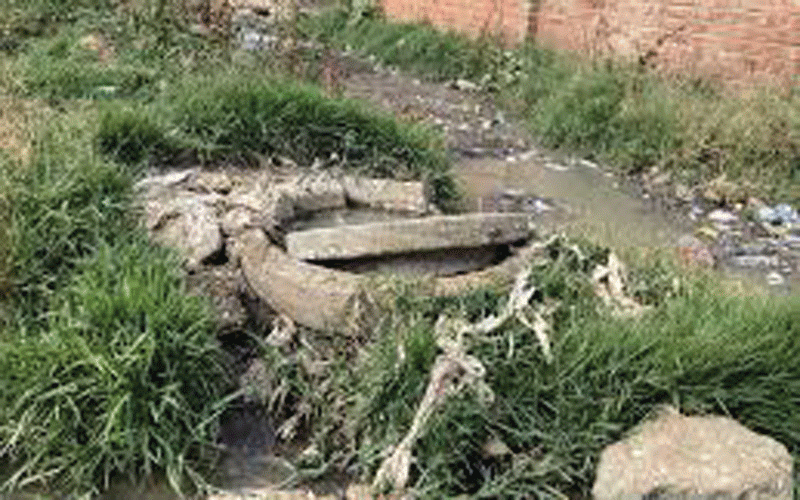
AT least four young Zimbabwean women have reportedly been deceptively recruited to work in a Russian factory producing suicide drones used in Ukraine, in what human rights observers call a transnational trafficking and exploitation scheme.
The women are alleged to be participants in the Alabuga Start programme, advertised across Africa as an educational and career opportunity in the Alabuga Special Economic Zone (SEZ) in Tatarstan, a republic in western Russia.
However, mounting evidence reveals that the programme, touted as a work-study initiative, is a front for recruiting young women, primarily from Africa, to manufacture Iran-designed Shahed drones deployed by Russian forces in Ukraine.
According to a November 2024 Associated Press report, African women, including Zimbabweans, are assembling drones, some equipped with thermobaric warheads, aerosol-based explosives known for their devastating impact.
The website AlabugaTruth.com details how the programme deceives and exploits young women, naming recruiters such as Ndawonde, Kamo Molatlhoe, Reneilwe Motlhodi, Sibongile Kajane, Solomon Ogyem, Amanda and Ayanda.
Alabuga Start markets itself as a training opportunity, promising four hours of work and six hours of study daily.
Investigations, however, revealed that participants endure 12 to 24-hour shifts under hazardous conditions, handling toxic chemicals without overtime pay.
In some cases, some women are reportedly confined to the premises, raising concerns about forced labour and human trafficking.
- COP26 a washout? Don’t lose hope – here’s why
- Under fire Mnangagwa resorts to Mugabe tactics
- How will energy crunch transition impact transition to renewables?
- COP26 a washout? Don’t lose hope – here’s why
Keep Reading
Phones are banned in the factory and participants face fines of up to US$20 000 if they speak publicly about their work.
Though advertised wages are around US$700 per month, deductions for accommodation, transport, healthcare and language classes often reduce take-home pay to as little as US$550, insufficient for survival in the isolated industrial zone.
While only four Zimbabwean women have been confirmed to be in the scheme, observers warn that the number could be higher.
Women’s Coalition of Zimbabwe chairperson Muchanyara Mukamuri said there was growing concern over the matter.
“As a coalition, we are actively pushing for the government’s transparency on the recruitment and verification processes tied to international programmes,” she said.
“We are calling for a multi-stakeholder investigation into the Alabuga Start arrangement as well as clear accessibility reporting channels for suspected trafficking victims.
“We are also monitoring and calling for public awareness on the risks of overseas employment.”
Mukamuri urged the government, through the ministries of Women’s Affair’s, Labour and Foreign Affairs, to put protective frameworks and stronger cross-border accountability to protect citizens from exploitation.
“There may be a need for promoting or allowing such schemes without adequate protection or legal oversight that affect what is happening online,” she said.
“There may need to be follow-up mechanisms that reflect seriously in safeguarding citizens so that at least we redress what is happening at the moment . . .
“There is a pattern that we have seen before, where young women are lured under the guise of opportunity to face exploitation, so we urge the State to act swiftly with the urgency this matter deserves to ensure our citizens are protected by laws and policies.”
When contacted to comment about reports of the four women trapped in the Alabuga Start project, Women’s Affairs minister Monica Mutsvangwa referred NewsDay to the ministry's legal adviser Fungai Chiware.
Chiware said: “As a ministry, we have never received any reports regarding that issue, but we stand ready as government to assist these victims if the matter is brought to our attention.”
In a statement, Information, Publicity and Broadcasting Services ministry chief director Jonathan Gandari described human trafficking as a “cruel, exploitative and inhumane” crime.
Gandari said Zimbabwe served as a source, transit and destination country for victims of trafficking.
“Women and children remain the most vulnerable, often lured into forced labour and sexual exploitation across various sectors such as agriculture, hospitality and construction,” he said.
Gandari urged communities to remain alert and collaborative.
“The digital era has not only enabled traffickers to operate across borders but also made it harder to trace and prosecute them,” he said
In what is public knowledge, in August 2024, representatives from Alabuga Start visited the Russian embassy in Zimbabwe, where they met with local officials to promote the programme.
No comment could be obtained from the Russian embassy.
Critics said the involvement of Zimbabwean and other African women in the production of weapons used in an international conflict raised serious legal questions under United Nations (UN) human trafficking statutes.
According to the UN, recruitment by deception for exploitative labour qualifies as human trafficking.
Photos posted by Alabuga Start on social media showcase recruits from over 30 countries, including Rwanda, Ghana, Nigeria, Kenya, South Africa and Mozambique — indicating a recruitment drive targeting the continent.
In April 2024, Interpol Botswana launched an investigation after online campaigns raised the red flag.
Detective Senior Superintendent Selebatso Mokgosi confirmed interrogating local organisers.
A May 2024 Bloomberg podcast revealed participants were misled into applying for student visas, only to later be instructed to switch to work permits.
Meanwhile, African women at the Alabuga SEZ have been found doing none of the hospitality or service work initially advertised.
According to the Institute for Science and International Security, up to 90% of female participants are placed directly in drone manufacturing.
Governments of Nigeria, Ethiopia, Uganda and Kenya have facilitated or endorsed participation in Alabuga programmes.
Uganda allocated 218 slots to Alabuga Start in 2023. Ethiopia’s Education ministry advertised the programme and Nigeria provided 150 places for Alabuga Polytechnic.
In 2024, the Russian embassy in Kenya discussed expanding enrolment.
African men have also been lured to combat roles.
Zambian student Lemekhani Nyirenda and Tanzanian Nemes Tarimo reportedly died after being coerced into fighting in Ukraine by Russia’s Wagner Group, now operating as Africa Corps.










